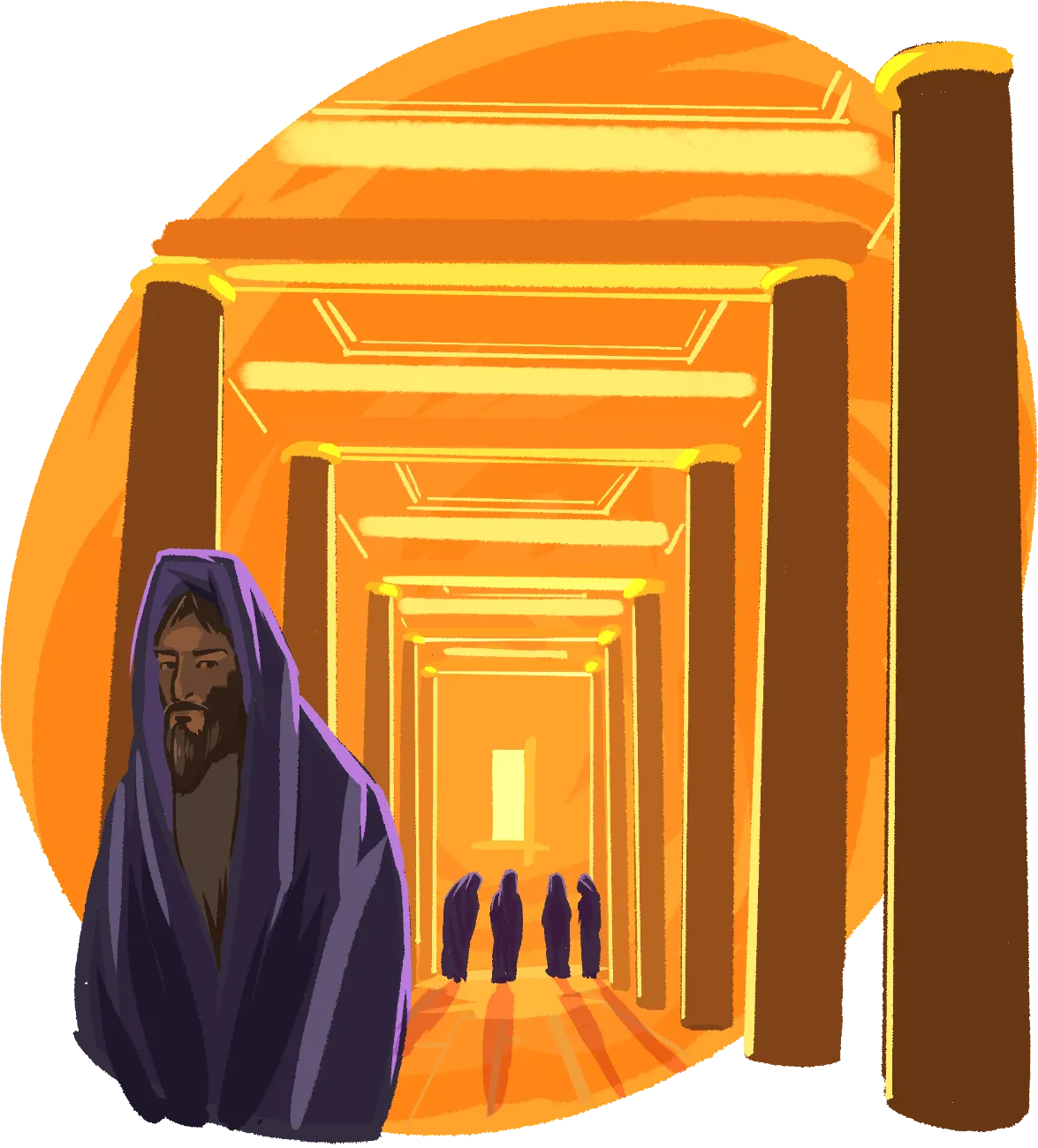Loading…
Priests and Rulers Continue Plotting

This chapter is based on John 11:47-54.
News of the raising of Lazarus soon arrived at Jerusalem. Spies quickly supplied the Jewish rulers with the facts. They called a meeting of the Sanhedrin at once to decide what to do. This mighty miracle was the crowning evidence God offered that He had sent His Son into the world for their salvation. It was a demonstration of divine power sufficient to convince every mind that was under the control of reason and an enlightened conscience. 3TC 347.2
But the priests were only enraged by this new miracle. Jesus had raised the dead in the full light of day and before a crowd of witnesses. No trick could explain away such evidence. For this reason the priests were more determined than ever to put a stop to Christ’s work. 3TC 348.1
The Sadducees had not been so full of hatred toward Christ as the Pharisees were, but now they were thoroughly alarmed. They did not believe in a resurrection of the dead, reasoning that it would be impossible for a dead body to be brought to life. But by a few words from Christ, they were shown to be ignorant of both the Scriptures and the power of God. How could they turn people away from One who had successfully robbed the grave of its dead? They could not deny the miracle, and they did not know how to counteract its effect. After the resurrection of Lazarus, the Sadducees decided that only Jesus’ death could stop His fearless denunciations against them. 3TC 348.2
The Pharisees believed in the resurrection, and they could not avoid seeing that this miracle was evidence that the Messiah was among them. But from the beginning, they had hated Him because He had torn aside the cloak hiding their moral deformity. The pure religion that He taught had condemned their hollow claims to piety. They thirsted for revenge for His pointed rebukes. Several times they had tried to stone Him, but He had quietly slipped away. 3TC 348.3
To stir up the Romans against Him, the Pharisees had claimed that He was trying to undermine Roman authority. They had tried every false accusation to cut Him off from influencing the people. But their attempts had failed. The crowds who witnessed His works and heard His pure teachings knew that these were not the deeds and words of a Sabbath-breaker or blasphemer. In desperation, the Jews had finally passed a decree that anyone who professed faith in Jesus would be expelled from the synagogue. 3TC 348.4
So Pharisees and Sadducees were more nearly united than ever before. They became one in their opposition to Christ. 3TC 348.5
At this time the Sanhedrin was not a legal assembly. It existed only by tolerance. Some of its members questioned the wisdom of putting Christ to death. They feared that this would stir up a revolt. The Sadducees, united with the priests in hating Christ, wanted to be cautious, fearing that the Romans would take away their high standing. 3TC 348.6
